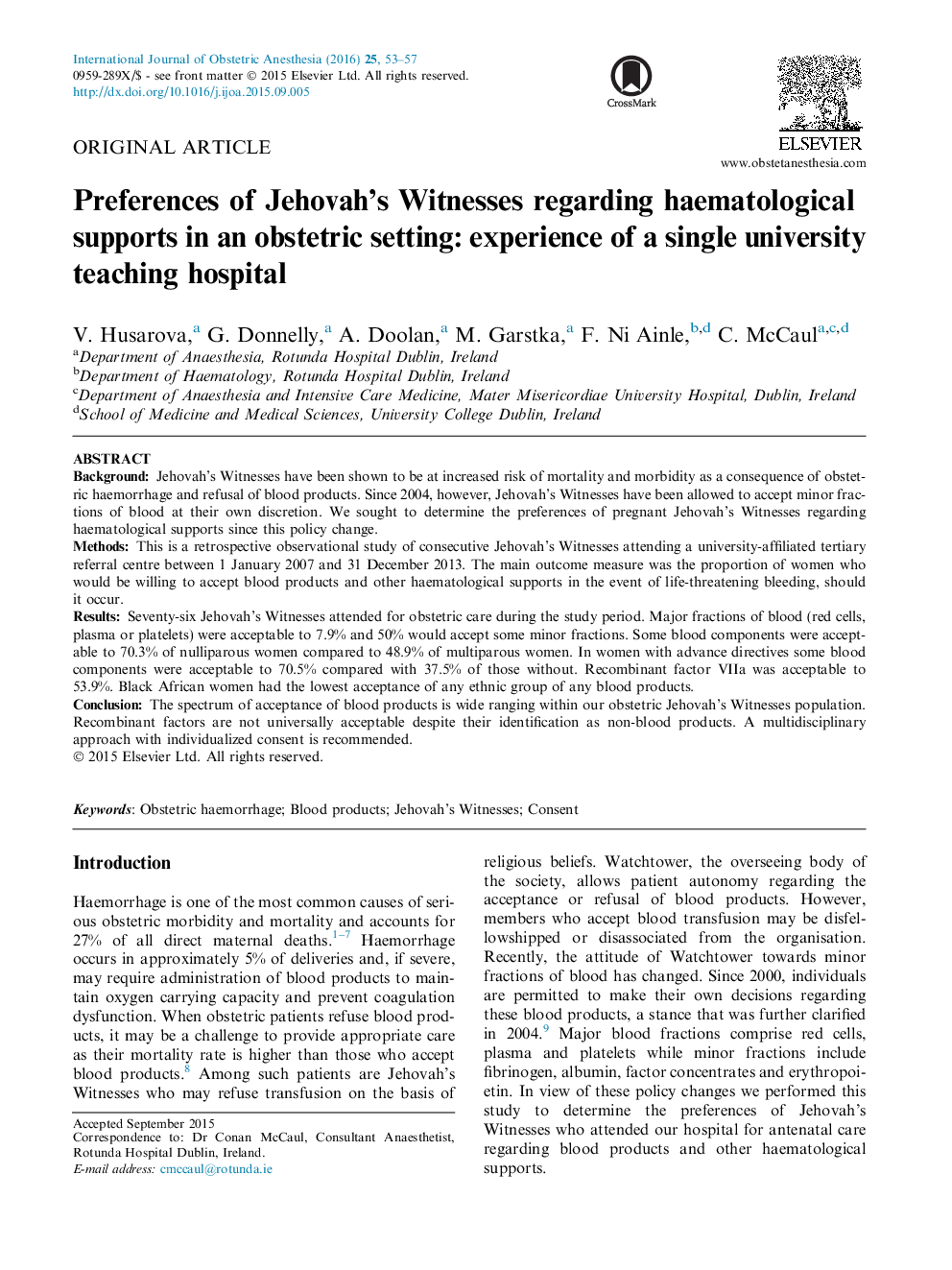| Article ID | Journal | Published Year | Pages | File Type |
|---|---|---|---|---|
| 2757460 | International Journal of Obstetric Anesthesia | 2016 | 5 Pages |
•We report the preferences of Jehovah’s Witnesses regarding haematological support in an obstetric setting.•If life-threatening bleeding were to occur, 32.8% of patients indicated they would not accept any blood products.•Major blood fractions were acceptable to 7.9% of Jehovah’s Witnesses.•Some minor blood fractions were acceptable to 50% of Jehovah’s Witnesses.•In 9.2% of cases, patient preferences regarding blood products changed following antenatal consultation.
BackgroundJehovah’s Witnesses have been shown to be at increased risk of mortality and morbidity as a consequence of obstetric haemorrhage and refusal of blood products. Since 2004, however, Jehovah’s Witnesses have been allowed to accept minor fractions of blood at their own discretion. We sought to determine the preferences of pregnant Jehovah’s Witnesses regarding haematological supports since this policy change.MethodsThis is a retrospective observational study of consecutive Jehovah’s Witnesses attending a university-affiliated tertiary referral centre between 1 January 2007 and 31 December 2013. The main outcome measure was the proportion of women who would be willing to accept blood products and other haematological supports in the event of life-threatening bleeding, should it occur.ResultsSeventy-six Jehovah’s Witnesses attended for obstetric care during the study period. Major fractions of blood (red cells, plasma or platelets) were acceptable to 7.9% and 50% would accept some minor fractions. Some blood components were acceptable to 70.3% of nulliparous women compared to 48.9% of multiparous women. In women with advance directives some blood components were acceptable to 70.5% compared with 37.5% of those without. Recombinant factor VIIa was acceptable to 53.9%. Black African women had the lowest acceptance of any ethnic group of any blood products.ConclusionThe spectrum of acceptance of blood products is wide ranging within our obstetric Jehovah’s Witnesses population. Recombinant factors are not universally acceptable despite their identification as non-blood products. A multidisciplinary approach with individualized consent is recommended.
